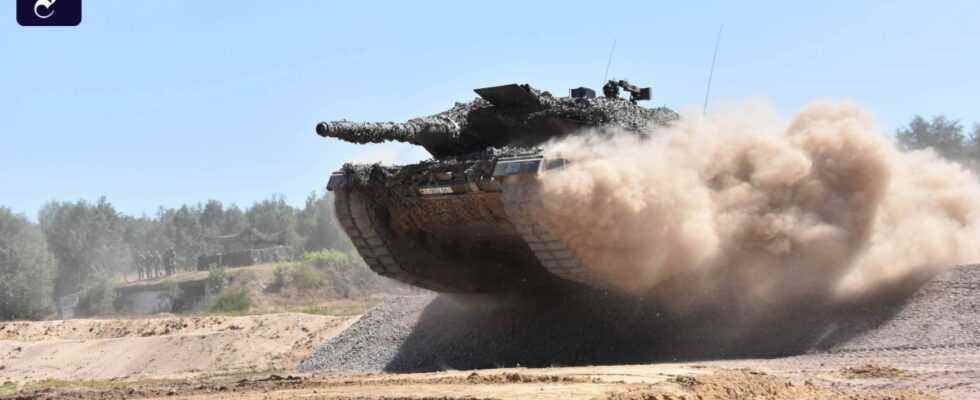Et are unusual words for an SPD chairman that Lars Klingbeil presented on Tuesday morning at a congress on the “Turning Point” of the Friedrich-Ebert-Foundation in Berlin. “Germany must claim to be a leading power,” demands the SPD leader. Germany has earned a lot of trust, which is accompanied by expectations of its international role. “We should meet these expectations,” says Klingbeil. It’s not about appearing “legs apart or rude”, but “acting thoughtfully, confidently and consistently”.
For this new role, which will require Germany to make tough financial and political decisions, “a completely different security policy debate is needed in Germany”. In the competition between the political centers in the world, the European Union must “develop a geopolitical significance”. In competition with Russia and China, it must win over other countries and forge new strategic alliances based on economic interests and political orientation. “Our claim must be that we are the most attractive center.”
With regard to Russia policy, Klingbeil complains that Germany believed for too long “that our political model of a rule-based order would ultimately prevail”. It was misunderstood that things had long since developed differently. “We should have seen the signals from Russia differently, at the latest in 2014 with the illegal annexation of Crimea.” Germany must continue to cooperate with countries that do not share our social model or even reject it.

SPD chairman Lars Klingbeil on Monday in Berlin after a press conference
:
Image: dpa
But there should be “no cooperation without an attitude”. “Change through rapprochement must never again be reduced to change through trade,” the social democrat criticizes the previous policy towards Russia, which is now a dictatorship. Klingbeil also advocates that Europe should expand its strategic autonomy, critical goods and critical infrastructure would have to be manufactured in this country. “We must never again become so dependent on energy policy as was the case with Russia.”
In view of Russia’s war of aggression in Ukraine, the 44-year-old SPD chairman calls for future foreign policy thinking in scenarios “and also to prepare for these scenarios”. Germany made mistakes in dealing with our Eastern and Central European partners because their view of Russia was ignored. “If we hear from the Baltic states or Poland that they are afraid of being Russia’s next targets, then we have to take that seriously,” says Klingbeil, and advocates intensifying the dialogue with the eastern EU states.
Klingbeil defended the delivery of weapons from Germany to the Ukraine, which included “heavy artillery”. That is part of the new role of the Federal Republic. The son of a soldier, who grew up at the largest army base in Munster, also calls for “a different social approach to the Bundeswehr”. In the public debate in Germany, the armed forces have increasingly “moved back” in recent years.
They were often only seen when there were scandals. “One almost got the impression that the fewer Bundeswehr forces there are, the lower the probability of war. The exact opposite is the case,” says Klingbeil. He hopes that German society will develop “a new normality with the Bundeswehr”. That means “that we talk about peace and security and, of course, think about the Bundeswehr.” Not talking about war leads to war, but closing one’s eyes to reality leads to war.
Lambrecht calls for better coordination between the EU and NATO
Defense Minister Christine Lambrecht speaks after Klingbeil. The social democrat calls for closer integration of military planning and capabilities not only within the European Union but also between the EU and NATO. A “coordinated capability planning” is required. The minister criticizes that even in the current situation with a war on European soil it is not possible to take a look at each other’s capability planning because some states did not want closer integration between NATO and the European Union. Lambrecht also calls for a “stronger partnership” between America and the EU.
The minister reports that Germany’s decision to provide an additional 100 billion euros for the Bundeswehr has led to “relief” among defense ministers of other countries because Germany is now also “moving”. Within Germany, not only the attitude of politicians but also of the population towards arms deliveries to war zones has changed. Before Russia attacked Ukraine, 70 percent of the population approved of Germany’s previous course of not supplying weapons to war zones. Now, 70 percent also support the federal government’s decision to supply Ukraine with weapons.
